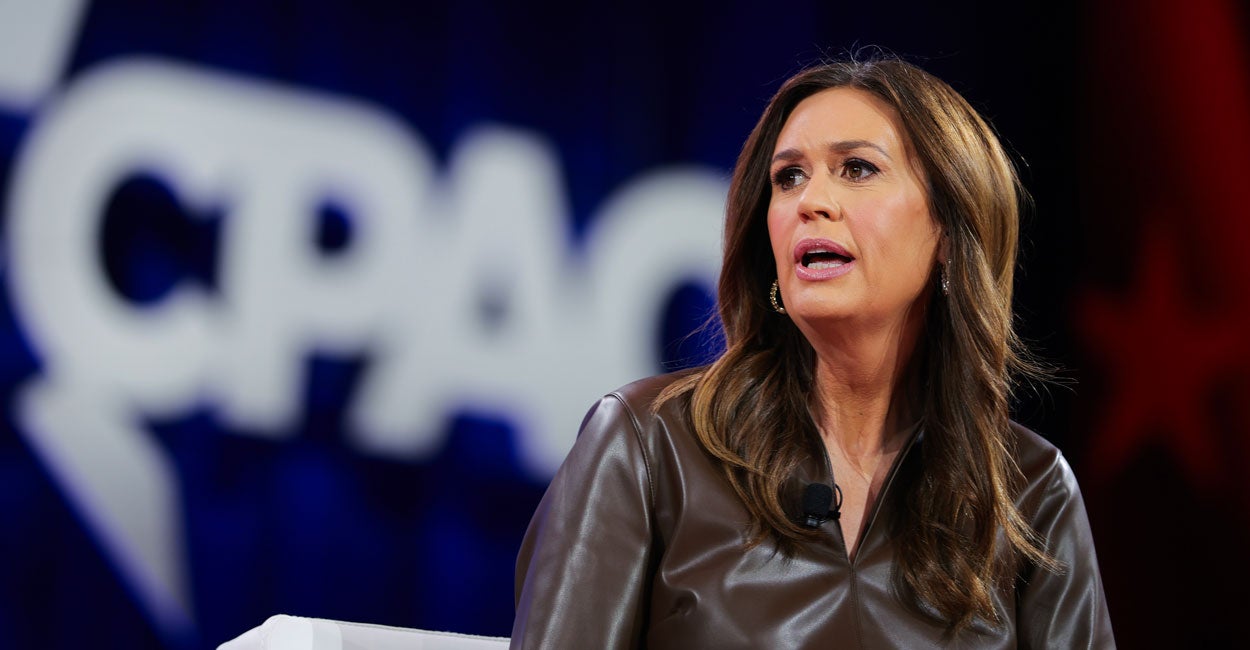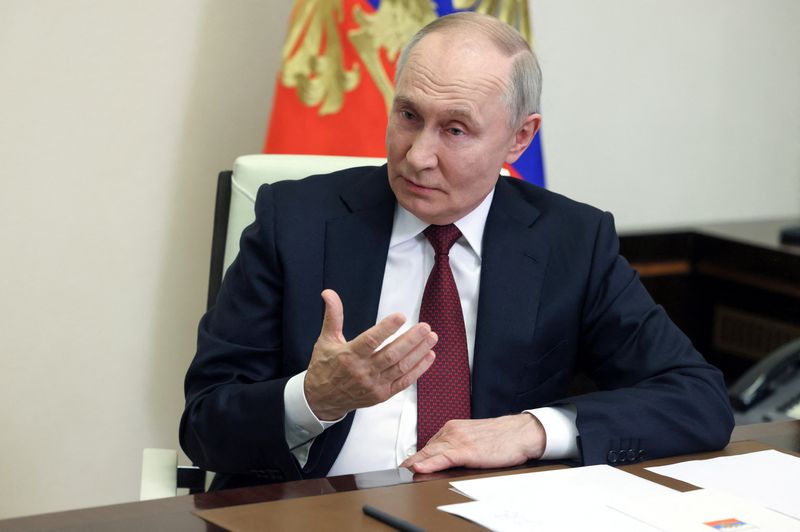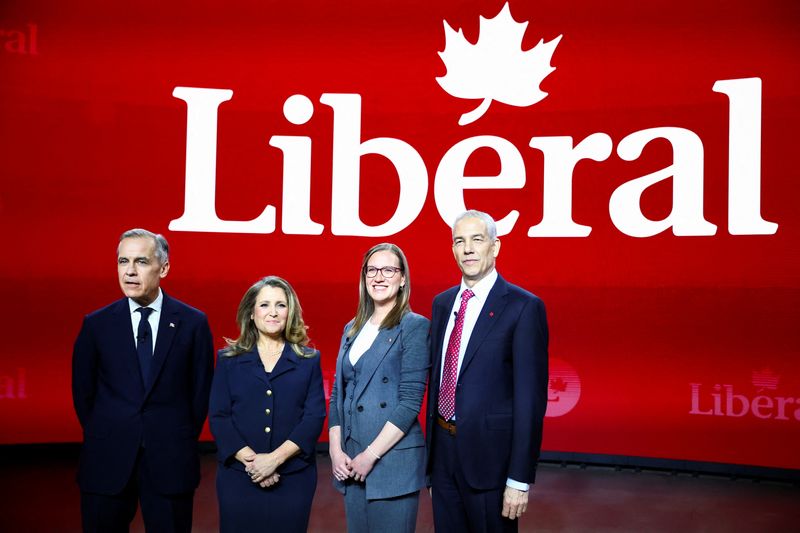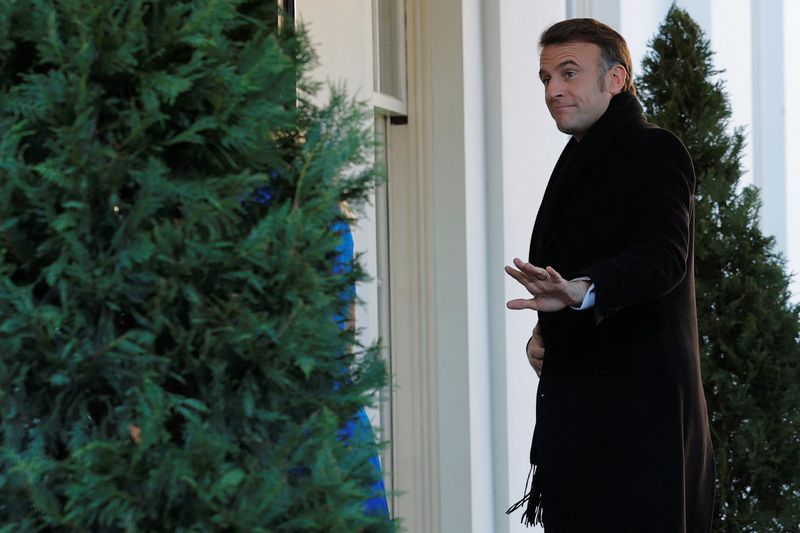Why is USAID’s death being met with silence?
The impact of cutting international assistance is incredibly harmful, and it hurts America too. It's time for our former leaders to speak up.
Mark Ward is retired from the U.S. Foreign Service and worked for USAID for over 30 years.
The U.S. Agency for International Development (USAID) is, for all practical purposes, dead. The new administration of President Donald Trump has placed most employees on administrative leave and laid off hundreds more.
The on-the-ground impact of this decision, felt in dozens of countries that looked to America for help, is real, harmful and sometimes deadly. It also hurts us at home.
In my many overseas assignments for USAID, some in dangerous places for U.S. diplomats, I saw first-hand the good our foreign aid can do.
In 2002, I was the head of USAID in Pakistan when the War on Terror began. The goal of our aid was to help convince Pakistani leaders that joining the fight against al Qaeda and the Taliban in Afghanistan was the right decision. And with this in mind, I proposed restarting an old USAID program, which had sent future Pakistani leaders to the U.S. for their higher education. They had brought home good memories of the U.S. and, over the years, helped keep Pakistan’s leaders pro-America.
During our meeting, the country’s new finance minister balked at my suggestions, saying none of the students would come back once they’d graduated. So, I took a gamble and asked the dozen or so advisors in the room how many of them had studied in the U.S. under the old program. They all raised their hands. The minister said: “You win.”
A few years after that, I was the head of USAID for Asia when a terrible earthquake and tsunami hit Indonesia and spread across the Indian Ocean. The Pentagon sent an aircraft carrier, as the nearby airports and roads were wrecked, and helicopters were the only way to reach many villages with life-saving food and water.
I was there, on deck, with then-Deputy Secretary of Defense Paul Wolfowitz. It was crowded with choppers coming and going, and palettes of supplies, all branded “From the American People.” USAID officers and the humanitarian agencies they funded knew what was needed and where. They were out on the deck, directing the whole operation.
Later, toward the end of my career, I led a team of U.S. government officers on the Turkish-Syrian border, managing aid that was going into Syria from 2012 to 2016. We were trying to sustain communities the Syrian government was trying to starve for supporting the rebels who stood up to the barbaric regime.
We worked with Turkey and Jordan to keep basic municipal services like water, sewage and power operating inside border towns, so the people there wouldn’t flee and add to the wave of refugees overwhelming neighboring countries and Europe. Congressional delegations — Republicans and Democrats alike — visited us often and praised our strategic efforts.
The geopolitical impact of gutting such foreign aid is incredibly concerning. China was already competing with the U.S. for foreign allies by investing billions in infrastructure projects. Today, we’ve all but conceded. And you can be sure our enemies are offering scholarships to the world’s future leaders at their universities too.

My question is, why haven’t we heard from our former leaders in defense of foreign aid? Presidents Joe Biden, Barack Obama, George W. Bush and Bill Clinton all sang its praises when they were in charge — as did their secretaries of state.
Now they are all silent — except for a single social media post by Obama.
I worked for them at USAID for more than 30 years. Some of them remember me, and they tell me they’re “working behind the scenes.” That may well be, but with all due respect, it isn’t working. Meanwhile, one of our most effective foreign policy tools is losing its best people and its credibility around the world.
People in need used to know who was helping them — help was coming “From the American People.” Now who will help them in our place? Aren’t you all concerned about what will happen to our reputation abroad when help from the U.S. becomes unreliable?
Of course, new leaders have changed a previous administration’s foreign aid priorities before. We would always pivot accordingly — that’s our political cycle. Those who couldn’t live with the changes could leave. That’s how Washington works, and the people who managed foreign aid knew that going in.
We pivoted for Trump too, in 2017. A few individuals left but most didn’t, and no one tried to shut foreign aid down. Had they been given the chance, the career staff at USAID would have adapted again this year. But they are being fired or told to stay home instead, and all but a handful of programs are now frozen.
In response to all this, many say no one cares about foreign aid outside the Washington Beltway. If that’s true, it’s because they don’t understand how good it is for our country — it is, after all, foreign. But since my retirement, I’ve spent a lot of time trying to explain the value of foreign aid at universities, churches and civic organizations. And maybe my audiences were just being polite, but they all thanked me for decades of hard work in some very dangerous places.
If given the facts, Americans understand how foreign aid keeps America great. That’s where our former leaders can help. They all have roots outside Washington; people in both red and blue states still listen when they speak.
So, I send this plea to them publicly: Speak up in defense of foreign aid and the dedicated people who manage it. Tell the American people why it mattered to you, how it helped the U.S. at home and across the globe. We looked to you for leadership during tough times before. We need you again now.
What's Your Reaction?


























:quality(85):upscale()/2024/09/09/785/n/1922283/901e710666df358b373de2.40207443_.jpg?#)
:quality(85):upscale()/2024/07/23/904/n/1922283/dc92642c66a0159ee98db4.72095370_.jpg?#)
:quality(85):upscale()/2024/07/10/842/n/1922283/8fb902af668edd399936b2.17277875_.jpg?#)
:quality(85):upscale()/2024/06/07/909/n/1922283/82a389f8666372643f2065.06111128_.jpg?#)
:quality(85):upscale()/2024/06/07/726/n/1922283/10bee64e666334778cf548.63095318_.jpg?#)
:quality(85):upscale()/2025/02/03/788/n/1922283/010b439467a1031f886f32.95387981_.jpg)
:quality(85):upscale()/2025/01/08/844/n/1922398/cde2aeac677eceef03f2d1.00424146_.jpg)
:quality(85):upscale()/2024/11/27/891/n/1922398/123acea767477facdac4d4.08554212_.jpg)
:quality(85):upscale()/2024/12/02/919/n/1922398/2b4b75f6674e20edcc99c3.42112799_.jpg)
:quality(85):upscale()/2024/10/29/690/n/1922398/e9bec6b46721006258d949.01358236_.jpg)












